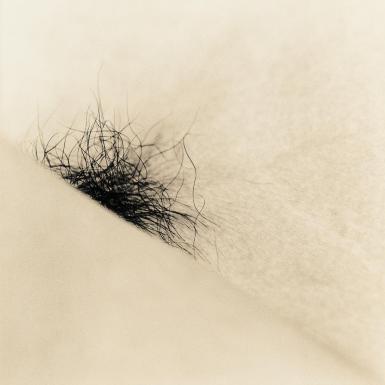The growth of pubic hair is typically regulated by the presence of certain androgens such as testosterone in your body. The loss of pubic hair can happen suddenly or can take place slowly. Some different factors and conditions can lead to the loss of pubic hair. When this happens, don't feel embarrassed to discuss with your doctor.
Causes of Pubic Hair Falling Out

1. Natural Hair Loss
In certain situations, the reason behind pubic hair loss is just like the loss of other hairs on your body. A lot of men as well as women who experience baldness may also lose their pubic and body hair. This could be caused by genetic factors.
2. Menopause
Menopause can bring a lot of changes to your body. Hair loss in your pubic area is one of the changes. Furthermore, women may also experience loss of hair in legs and armpits.
3. Alopecia
Alopecia is used to describe different hair loss conditions, ranging from total loss of hair to patchy one. A significant number of people who suffer from this condition can have hair loss in their pubic region.
4. Underactive Adrenal Gland
The adrenal gland is responsible for the release of certain amount of hormones which promote physical and sexual maturity, leading to hair growth. If you have an underactive adrenal gland, you may suffer from hair loss in your pubic area and in other parts of your body.
5. Cancers
Cancerous conditions such as leukemia can be responsible for pubic hair falling out. The treatment designated for cancer such as chemotherapy can also cause the loss of hair on your entire body.
6. Telogen Effluvium
Hair growth goes through 3 stages: the growth phrase (anagen), the resting phrase (catagen), and the shedding phase (telogen). When you experience a stressful event, like giving birth or receiving a surgery, the hair in the growth phrase and the resting phrase can change into the shedding phrase, which means you will lose your hair 6 to 12 weeks after that event.
7. Aging
While you grow old, your body undergoes various different changes which begin at cellular levels. With this in mind, you should be well aware that loss of pubic hair is something quite natural as the cell growth rate decreases with age.
8. Medications
There are many medications which can lead to pubic hair loss. For example, some psychotropic medications used to treat bipolar disorders or depression can cause your pubic hair to lose. Chemotherapy medications also have the same effects.
How to Deal with Pubic Hair Falling Out
First, you should talk with your doctor about your condition, and he or she will help to make a clear diagnosis. If there are no serious underlying conditions, you may try the following tips to get your pubic hair back.
1. Watch for Nutritional Balance

Taking care of your diet is important. What nutrition you take and how you take care of your body can be manifested by your hair and skin. Therefore, eating a well balanced diet may help you grow your pubic hair back.
- Avoid too much sugar. If you have too much sugar in your diet, this could create an acid state in your body, which prevents you from achieving proper nutrition balance.
- Include cruciferous vegetables such as cabbage and broccoli, and lean proteins in your diet. Cruciferous vegetables contain sulfur which can promote hair growth efficiently, and protein is necessary in the process of hair growth.
- Take vitamin and mineral supplements. Brewer’s yeast is a great choice in this regard. It is rich in B vitamins and minerals such as selenium, which can promote the growth of hair.
2. Try Dehydroepiandrosterone (DHEA)
DHEA is a steroid which is usually produced by the adrenal glands. It can promote the production of testosterone in men and estrogen in women. If the adrenal gland is underactive, the stores of this steroid are going to be degraded, which contributes to pubic hair falling out. In this case, the use of DHEA can help your pubic hair regrow. The recommended dosage of DHEA is 25 mg per day.
Note: If you have a family history of cancers related to hormones, it is very important to consult an endocrinologist to get an assessment of whether DHEA can do more good than bad for you.
